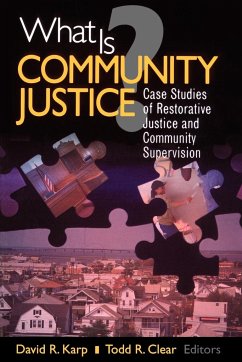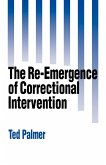Past methods of probation and parole supervision have largely relied on caseworkers who monitor their "clients" as well as they can. But, as numbers of "clients" increase, studies indicate that this model is ineffectual. The time has come to significantly rethink the approaches to community supervision. As described in What Is Community Justice?, the aim of the new efforts is to explicitly integrate the community and the criminal justice process in probation programs. There are five key goals that this book addresses to achieve this end: · The building of partnerships between community supervision agencies and the community · Expanding the "client" definition to include the victim of crime, the family of the offender, and the community itself · Focus on places: agencies must take into account important local differences in neighborhoods · Preventing problems between the community and the client rather than reacting to them · Adding value to community life This book addresses the specific ways of achieving these goals by presenting six case studies of probation programs that represent a practical side of the community justice ideal. What emerges is a provocative and enlightening new approach to the problems of probation and parole.
Hinweis: Dieser Artikel kann nur an eine deutsche Lieferadresse ausgeliefert werden.
Hinweis: Dieser Artikel kann nur an eine deutsche Lieferadresse ausgeliefert werden.









